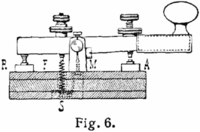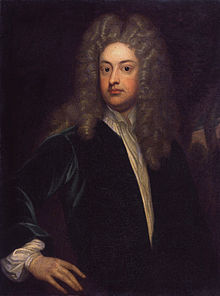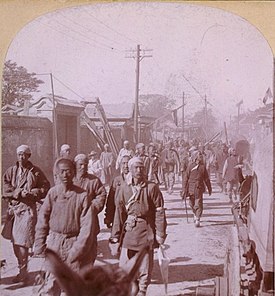June 17 is the 168th day of the year (169th in leap years) in the Gregorian calendar. There are 197 days remaining until the end of the year.
Holidays
- Bunker Hill Day (Suffolk County, Massachusetts)
- Christian feast day:
- Albert Chmielowski
- Botolph (England and Scandinavia)
- Gondulphus of Berry
- Hervé
- Hypatius of Bithynia (Eastern Orthodox and Byzantine Catholic Churches)
- Rainerius
- Samuel and Henrietta Barnett (Church of England)
- June 17 (Eastern Orthodox liturgics)
- Father’s Day (El Salvador, Guatemala)
- Icelandic National Day, celebrates the independence of Iceland from Kingdom of Denmark in 1944.
- Occupation of the Latvian Republic Day (Latvia)
- World Day to Combat Desertification and Drought (International)
- Zemla Intifada Day (Sahrawi Arab Democratic Republic)
- Eat Your Vegetables Day
History
In 653, Pope Martin I is arrested in the Lateran Palace before being taken to Constantinople and tried for high treason.
In 1244, Following the Disputation of Paris, twenty-four carriage loads of Jewish religious manuscripts were burnt in Paris.
In 1397, The Kalmar Union is formed under the rule of Margaret I of Denmark.
In 1462, Vlad III the Impaler attempts to assassinate Mehmed II (The Night Attack) forcing him to retreat from Wallachia.
In 1497, Battle of Deptford Bridge – forces under King Henry VII defeat troops led by Michael An Gof.
In 1565, Matsunaga Hisahide assassinates the 13th Ashikaga shogun, Ashikaga Yoshiteru.
In 1579, Sir Francis Drake claims a land he calls Nova Albion (modern California) for England.
In 1596, The Dutch explorer Willem Barentsz discovers the Arctic archipelago of Spitsbergen.
In 1631, Mumtaz Mahal dies during childbirth. Her husband, Mughal emperor Shah Jahan I, will spend the next 17 years building her mausoleum, the Taj Mahal.
In 1665, Battle of Montes Claros: Portugal definitively secured independence from Spain in the last battle of the Portuguese Restoration War.
In 1673, French explorers Jacques Marquette and Louis Jolliet reach the Mississippi River and become the first Europeans to make a detailed account of its course.
In 1719, Joseph Addison, English poet and playwright (b. 1672) dies. He was an English essayist, poet, playwright, and politician. He was the eldest son of The Reverend Lancelot Addison. His name is usually remembered alongside that of his long-standing friend, Richard Steele, with whom he founded The Spectator magazine. The Spectator, the first number of which appeared on 1 March 1711. This paper, which at first appeared daily, was kept up (with a break of about a year and a half when The Guardian took its place) until 20 December 1714. The Spectator was a daily publication founded by Joseph Addison and Richard Steele in England, lasting from 1711 to 1712. Each “paper”, or “number”, was approximately 2,500 words long, and the original run consisted of 555 numbers, beginning on 1 March 1711. These were collected into seven volumes. The paper was revived without the involvement of Steele in 1714, appearing thrice weekly for six months, and these papers when collected formed the eighth volume. Eustace Budgell, a cousin of Addison’s, also contributed to the publication. “The Spectator” also had many readers in the American colonies. In particular, James Madison read the paper avidly as a teenager. It is said to have had a big influence on his world view, lasting throughout his long life.
In 1773, Cúcuta, Colombia, is discovered by Juana Rangel de Cuéllar.
In 1775, American Revolutionary War: Colonists inflict heavy casualties on British forces while losing the Battle of Bunker Hill.
In 1789, In France, the Third Estate declares itself the National Assembly.
In 1839, In the Kingdom of Hawaii, Kamehameha III issues the edict of toleration which gives Roman Catholics the freedom to worship in the Hawaiian Islands. The Hawaii Catholic Church and the Cathedral of Our Lady of Peace are established as a result.
In 1843, The Wairau Affray, the first serious clash of arms between Māori and British settlers in the New Zealand Wars, takes place.

In 1849, News flashed for the first time over Morse Telegraph from Memphis to Nashville. The first telegram in the United States was sent by Morse on 11 January 1838, across two miles (3 km) of wire at Speedwell Ironworks near Morristown, New Jersey, although it was only later, in 1844, that he sent the message “WHAT HATH GOD WROUGHT?” over the 44 miles (71 km) from the Capitol in Washington to the old Mt. Clare Depot in Baltimore.
In 1861, Battle of Vienna, Virginia in the American Civil War.
In 1863, Battle of Aldie in the Gettysburg Campaign of the American Civil War.
In 1876, American Indian Wars: Battle of the Rosebud – 1,500 Sioux and Cheyenne led by Crazy Horse beat back General George Crook‘s forces at Rosebud Creek in Montana Territory.
In 1877, American Indian Wars: Battle of White Bird Canyon – the Nez Perce defeat the U.S. Cavalry at White Bird Canyon in the Idaho Territory.
In 1885, The Statue of Liberty arrives in New York Harbor.
In 1898, The United States Navy Hospital Corps is established.
In 1900, Boxer Rebellion: Allied Western and Japanese forces capture the Taku Forts in Tianjin, China.
In 1901, The College Board introduces its first standardized test, the forerunner to the SAT.
In 1910, Aurel Vlaicu pilots an A. Vlaicu nr. 1 on its first flight.
In 1930, U.S. President Herbert Hoover signs the Smoot-Hawley Tariff Act into law.
In 1932, Bonus Army: around a thousand World War I veterans amass at the United States Capitol as the U.S. Senate considers a bill that would give them certain benefits.
In 1933, Union Station Massacre: in Kansas City, Missouri, four FBI agents and captured fugitive Frank Nash are gunned down by gangsters attempting to free Nash.
In 1939, Last public guillotining in France: Eugen Weidmann, a convicted murderer, is guillotined in Versailles outside the Saint-Pierre prison
In 1940, World War II: sinking of the RMS Lancastria by the Luftwaffe near Saint-Nazaire, France. At least 3,000 are killed; Britain’s worst maritime disaster.
In 1940, World War II: the British Army‘s 11th Hussars assault and take Fort Capuzzo in Libya, Africa from Italian forces.
In 1940, The three Baltic states of Estonia, Latvia and Lithuania fall under the occupation of the Soviet Union.
In 1944, Iceland declares independence from Denmark and becomes a republic.
In 1953, East Germany Workers Uprising: in East Germany, the Soviet Union orders a division of troops into East Berlin to quell a rebellion.
In 1958, The Ironworkers Memorial Second Narrows Crossing, in the process of being built to connect Vancouver and North Vancouver (Canada), collapses into the Burrard Inlet killing many of the ironworkers and injuring others.
In 1960, The Nez Perce tribe is awarded $4 million for 7 million acres (28,000 km2) of land undervalued at 4 cents/acre in the 1863 treaty.
In 1963, The United States Supreme Court rules 8 to 1 in Abington School District v. Schempp against requiring the reciting of Bible verses and the Lord’s Prayer in public schools.
In 1963, A day after South Vietnamese President Ngo Dinh Diem announced the Joint Communique to end the Buddhist crisis, a riot involving around 2,000 people breaks out. One person is killed.
In 1967, The People’s Republic of China announces a successful test of its first thermonuclear weapon.
In 1971, President Richard Nixon declares the U.S. War on Drugs.
In 1972, Watergate scandal: five White House operatives are arrested for burgling the offices of the Democratic National Committee, in an attempt by some members of the Republican party to illegally wiretap the opposition. The five, Virgilio González, Bernard Barker, James McCord, Eugenio Martínez, and Frank Sturgis, were charged with attempted burglary and attempted interception of telephone and other communications. On September 15, a grand jury indicted them, as well as G. Gordon Liddy and E. Howard Hunt, for conspiracy, burglary, and violation of federal wiretapping laws. The five burglars who broke into the office were tried by a jury, Judge John Sirica officiating, and pled guilty or were convicted on January 30, 1973.
In 1985, STS-51-G Space Shuttle Discovery launches carrying Sultan bin Salman bin Abdulaziz Al Saud, the first Arab and first Muslim in space, as a Payload Specialist.
In 1986, Kate Smith, American singer (b. 1907) dies of respiratory arrest at Raleigh Community Hospital in Raleigh at the age of 79. She was called The First Lady of Radio, a contralto, well known for her rendition of Irving Berlin‘s “God Bless America“. She had a radio, television, and recording career spanning five decades, which reached its pinnacle in the 1940s. Smith became known as The Songbird of the South after her enduring popularity during World War II. https://www.youtube.com/watch?v=TmfeNq5x5aQ

In 1987, With the death of the last individual of the species, the Dusky Seaside Sparrow becomes extinct.
In 1991, Apartheid: the South African Parliament repeals the Population Registration Act which required racial classification of all South Africans at birth.
In 1992, A “joint understanding” agreement on arms reduction is signed by U.S. President George Bush and Russian President Boris Yeltsin (this would be later codified in START II).
In 1994, Following a televised low-speed highway chase, O.J. Simpson is arrested for the murders of his wife, Nicole Brown Simpson, and her friend Ronald Goldman.

In 2008, Cyd Charisse, American actress and dancer (b. 1922) dies after suffering an apparent heart attack. She was an American actress and dancer.
After recovering from polio as a child, and studying ballet, Charisse entered films in the 1940s. Her roles usually focused on her abilities as a dancer, and she was paired with Fred Astaire and Gene Kelly; her films include Singin’ in the Rain (1952), The Band Wagon (1953), Brigadoon with Gene Kelly and Van Johnson(1954) and Silk Stockings (1957). She stopped dancing in films in the late 1950s, but continued acting in film and television, and in 1992 made her Broadway debut. In her later years, she discussed the history of the Hollywood musical in documentaries, and was featured in That’s Entertainment! III in 1994. She was awarded the National Medal of the Arts and Humanities in 2006. She was born as Tula Ellice Finklea in Amarillo, Texas.
In 2015, Nine people are killed in a mass shooting at Emanuel African Methodist Episcopal Church in Charleston, South Carolina.
In 2017, A series of wildfires in central Portugal kill at least 64 people and injure 204 others.





